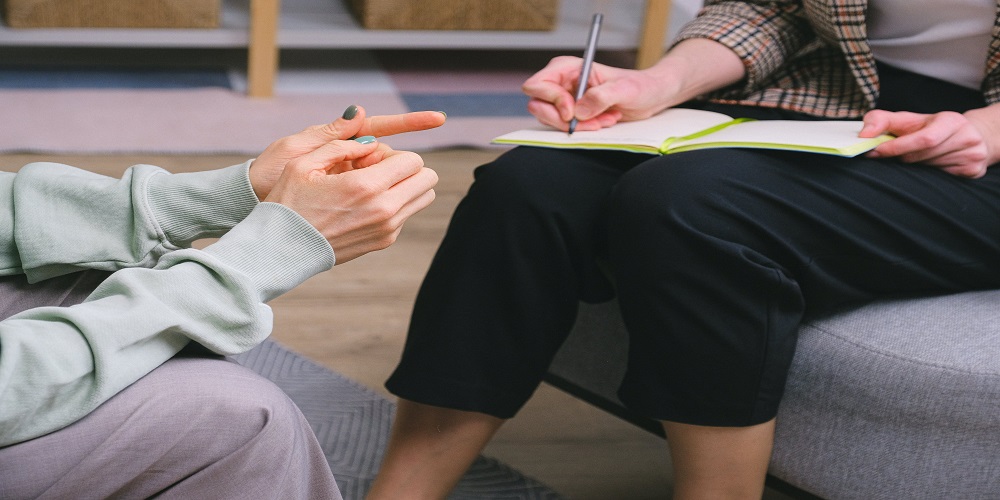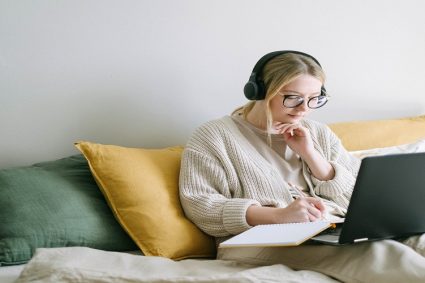In today’s fast-paced world, anxiety has become a prevalent issue, affecting people of all ages and backgrounds. While medical interventions can be crucial for severe cases, many individuals with mild to moderate anxiety might benefit from exploring natural methods to manage their symptoms. As a medical professional, I recognize the importance of a holistic approach to health that combines traditional medicine with lifestyle changes and natural remedies. In this blog, we’ll delve into the most researched and most effective strategies to naturally manage anxiety.

- Prioritize Sleep Quality
One of the most underestimated contributors to anxiety is inadequate sleep. Sleep deprivation can increase stress hormones which exacerbate the feeling sof anxiety, and decrease your ability to cope with daily challenges. Establish a regular sleep schedule, create a calming bedtime routine, and ensure your sleep environment is conducive to relaxation. Consider avoiding electronic devices before bed, as the blue light emitted can disrupt your sleep cycle.
- Stay Physically Active
Regular exercise is a potent natural remedy for anxiety. Physical activity releases endorphins, which are known as “feel-good” hormones. Engaging in activities like jogging, swimming, yoga, or even a leisurely walk can have a positive impact on your mood. Aim for at least 150 minutes of moderate exercise per week.
- Mindfulness and Meditation
Mindfulness practices and meditation have gained significant recognition for their ability to reduce anxiety. These techniques encourage you to focus on the present moment, helping to break the cycle of worry about the future. Deep breathing exercises, progressive muscle relaxation, and guided imagery can all be valuable tools in managing anxiety naturally.
A 2013 study published in the journal “JAMA Internal Medicine” compared mindfulness-based stress reduction (MBSR) with an SSRI (sertraline) and a placebo in adults with generalized anxiety disorder. The study found that both MBSR and sertraline led to significant reductions in anxiety symptoms, with MBSR showing similar efficacy to the medication. Additionally, the study found that MBSR had a more durable effect over time after treatment discontinuation.
Another study published in the journal “Depression and Anxiety” in 2016 examined the effects of mindfulness meditation versus an SSRI (escitalopram) in individuals with generalized anxiety disorder. The study found that both interventions were effective in reducing anxiety symptoms, and mindfulness meditation showed comparable efficacy to the SSRI, but without the side effects.
- Balanced Diet and Hydration
The food you consume can impact your mood and anxiety levels. Focus on a well-balanced diet rich in whole grains, lean proteins, fruits, and vegetables. Omega-3 fatty acids found in fish, flaxseeds, and walnuts have been linked to reduced anxiety. Avoid excessive caffeine and sugar, as they can exacerbate feelings of restlessness and nervousness. Staying hydrated is equally important, as dehydration can amplify stress.
- Herbal Remedies
Several herbal remedies have shown promise in managing anxiety. Valerian root, passionflower, ashwaganda, and chamomile are often used in herbal teas or supplements to promote relaxation. However, it’s essential to consult with a healthcare professional before incorporating these supplements into your routine, especially if you’re already taking medication or have underlying health conditions.
- Adequate Nutritional Supplements
Certain nutrients play a role in maintaining optimal brain function and mood regulation. Magnesium, for instance, has been linked to reduced anxiety symptoms. B vitamins, particularly B6, B12, and folate, are also essential for healthy brain function. Consult with a healthcare provider about getting proper blood work to assess for deficiencies, and before taking any supplements to ensure they’re appropriate for your needs.
- Limit Stimulants and Alcohol
While it might be tempting to turn to stimulants like caffeine or alcohol for temporary relief, these substances can actually exacerbate anxiety in the long run. Caffeine can increase heart rate and nervousness, while alcohol’s depressant effects can disrupt sleep patterns and exacerbate anxious feelings.
- Limit Screen Time
Excessive screen time, particularly on social media or news platforms, can contribute to anxiety by exposing you to a constant stream of information and potential stressors.
A study published in the journal “JAMA Pediatrics” in 2019 found that high levels of screen time were associated with a higher likelihood of experiencing symptoms of depression and anxiety in adolescents. The study suggested that screen time, particularly on social media platforms, might contribute to feelings of inadequacy and social comparison, which could increase anxiety.
Furthermore, research published in “Computers in Human Behavior” in 2020 explored the relationship between screen time and psychological well-being in young adults, and to no surprise, the study found that higher levels of screen time were associated with higher levels of anxiety and depressive symptoms. Consider setting boundaries on your screen time and designating tech-free periods throughout your day.
Anxiety management is a personalized journey, and what works for one person may not work for another. Natural approaches can be valuable tools in managing anxiety, but it’s crucial to remember that seeking professional guidance is essential, especially if your anxiety is severe or persistent. A medical professional can provide personalized recommendations based on your individual health status and needs. By combining these natural methods with expert advice, you can take meaningful steps towards a calmer, more balanced life.








